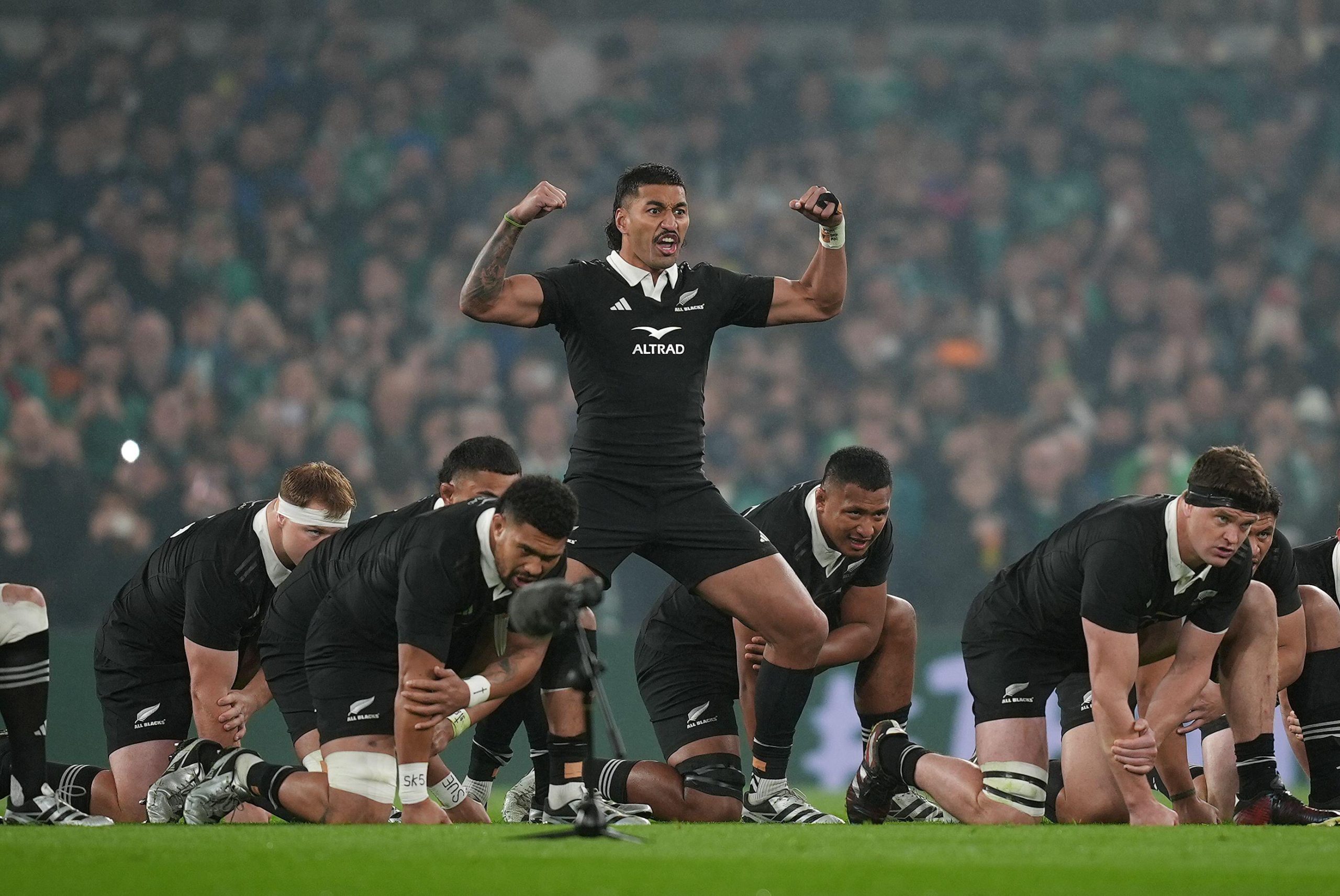
By Charlie Elliott
For exclusive stories and all the detailed rugby news you need, subscribe to The Rugby Paper website, digital edition, or newspaper from as little as 14p a day.
Rieko Ioane has announced that he will be taking a sabbatical next season from the All Blacks and joining Irish URC side Leinster for six months from December.
The move comes following Jordie Barrett’s successful spell at the Dublin club, and with Ioane being predominantly a centre like Barrett, they have gone from one All Black to another.
Fans of the other provinces have criticised the seemingly endless pit of money that Leinster have, especially considering that they already have most of the Ireland national team in their ranks.
But is the Ioane move and the dominance of the province actually unfair? Or is it beneficial for rugby in the country and the national team?
National Team Influence
One of the main issues is not necessarily the inclusion of international talent such as Ioane, but the fact that it is coupled with the majority of the Ireland side.
The obvious benefit of having most of a national team playing week in, week out is that it creates cohesion that cannot be replicated.
With Ireland winning two of the last three Six Nations, it seems to have paid dividends for Andy Farrell‘s team.
If the players were spread equally between the four provinces, that cohesion would almost certainly not be able to be replicated.
The Irish union announced this week that the four provinces will have to contribute 40% to Ireland’s centrally contracted players from August 2026, a significant increase on the current 30% figure.
With 11 of the 14 deals being Leinster players, this increase will affect them the most by far, meaning that they will pay more money to the IRFU.
If this increased revenue generated by the union ends up being distributed evenly between the provinces, it should at least partially bridge the gap.
Previous Signings
Another argument against the backlash behind the Ioane signing is that other provinces have done the exact same at different times.
Munster have had Jean de Villiers, Damian de Allende and Malakai Fekitoa to name just a few.
This dominance and signing of international talent is nothing new for Irish teams, and while it is Leinster today, the cycle could continue onto another team in the next few years.
Numbers aren’t officially available about the gulf in spending between Leinster and both the other provinces and the rest of the URC, but it is widely reported that it is ‘significantly higher’ than the rest of the league.
French outlet Midi Olympique have said that it may be in the region of €16 million, not including Barrett and Springbok RG Snyman.
If that number is to be believed, it far eclipses the Premiership’s cap of just under €7.5 million and the Top 14‘s of around €10.7 million.
With the recent games in the Champions Cup for Leinster, with 62-0 and 52-0 wins over Harlequins and Glasgow Warriors, it has brought a wider debate as to whether it is unfair to the rest of Europe.
Affect on Champions Cup
Quins and the rest of the Prem, and to a lesser extent the Top 14, being forced to abide by a salary cap and having a much smaller expenditure compared to the URC teams means that the Champions Cup is not a fair competition and will always have the same few winners, barring a minor miracle.
The integrity of the competition has been questioned following some very one-sided games recently.
It could also be said that the starting XV of Leinster is definitely better, but not by a huge amount, when compared to their provincial counterparts, and it is instead the second and third string players that are the huge difference.
This means that there are hugely talented Irish players who are not getting the same gametime that they could be getting if they were playing for Munster, Connacht or Ulster, which will hamper their development.
The dominance of the Dublin club can also be said to hold back the general standard of rugby in the country as a result.
Dublin Effect
The reasoning behind this gulf in depth can also be put down to the fact that Leinster are based in the capital, and many of the big rugby-playing colleges are located in this area as a result.
Forcing players to move across the country from a young age may be more detrimental to them when compared to the increased game time that they may get.
Most of the youth development is outsourced by the IRFU to these colleges, which saves them money that can be spent elsewhere.
Overall, other clubs have a right to feel aggrieved seeing some of the huge signings that Leinster have made, but as long as the rules and structures in the URC and Irish rugby stay as they are now, they are naturally going to take advantage.
For the sake of fairness, some sort of budget cap would make it a more even playing field, but could reduce the general quality of rugby in the country. It really comes down to whatever is valued the most by the majority.


British and Irish Lions
Charlie Elliott: The 17 backs I would select for the British and Irish Lions

British and Irish Lions
Charlie Elliott: The 21 forwards I would select for the British and Irish Lions squad























You must be logged in to post a comment Login